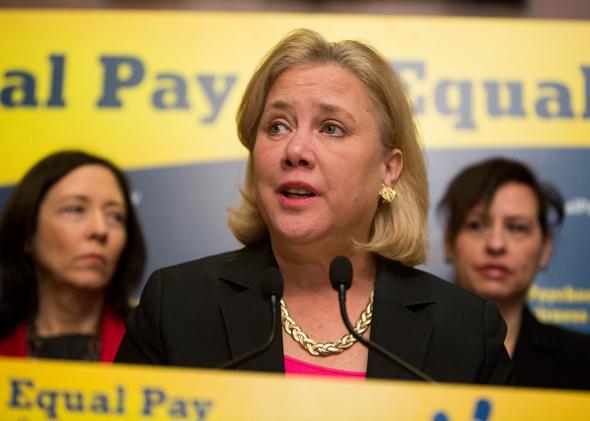Election Day is coming and it’s likely to stick around. The question of which party will control the Senate may very well not be decided on Nov. 4. Republicans look like they will have a good night, but there are so many close races—at least 10—and so many unpredictable factors in at least four of those races, that with recounts, independent candidates, and runoffs, the process could drag into next year. Here, in rough order of delay, are the possible outcomes and how long they could keep us all bollixed up.
Hamlet Comes Home: Let’s say the GOP wins five of the six seats it needs to regain control of the Senate and then one of the independent candidates in South Dakota or Kansas wins. Whether Democrats or Republicans control the upper chamber would then be determined by which party that independent decided to pick. Greg Orman of Kansas has said he would caucus with the clear majority, but in this case there wouldn’t be one. Given that he ran as a Democrat and Republicans are pounding him pretty hard in his race, he’d probably stick with the Democrats. South Dakota independent Larry Pressler has said he will be “a friend of Obama,” which suggests he’d probably stick with the Democrats too, though he’s the bigger long shot to win at the moment.
Still, the leaders of both parties should probably have emergency gift baskets at the ready. The president would no doubt be called in to lobby, or perhaps Democrats would have one of their Hollywood backers make the pitch. On the Republican side, the Koch Center for Cowboy Poetry seems like a natural to round out South Dakota’s tourist offerings. Senate leaders Harry Reid and Mitch McConnell might put together a short list of choice committee assignments to offer.
What are the chances any of this might happen? Orman is roughly even with Pat Roberts in the polls. South Dakota seems less likely. It’s a bit of a black box as four candidates battle it out. Pressler was on the rise, but has little campaign cash and the GOP is sending the cavalry to a state where Republicans have the advantage.
Recount: If the GOP wins five of the six seats it needs, there might be one race so close that the loser requests a recount. In Alaska and South Dakota, watch for debates over counting in Native American areas. Of the tight contests, Colorado has an automatic recount rule, so if the loser in that race gets less than or equal to the 0.5 percent of the highest vote cast, then the tally gets calculated again. That was the law in Minnesota in 2008, when Al Franken and Norm Coleman fought it out for months until the outcome was decided. As is now standard practice, both parties will have election lawyers at the ready to step in if one of the races is contested. If this runoff takes place to determine the sixth declared Republican victory, and Orman also wins, the recount will also likely determine which side he joins. (I am assuming, for the purposes of this fantasy, that Orman delays his party selection until the recount is complete.)
Election 2015: In Georgia and Louisiana, the winning candidate must get more than 50 percent of the vote or there is a runoff. In Louisiana it would take place in December. In Georgia, that election would take place Jan. 6, three days after Congress is sworn in. What are the chances that either could go to a runoff? Pretty good. In Georgia the polls are close and neither candidate is cracking 50 percent. Things look better for Sen. Mary Landrieu in Louisiana, but she has not come close to the 50 percent threshold there.* But given the imprecision of polling, the volatility of politics, and the fact that this is Louisiana, a runoff still seems thoroughly possible. As with the recounts, if the runoff determines the sixth declared Republican victory, the voters of either Georgia or Louisiana (or both!) will likely be picking the party to which Greg Orman offers his allegiance.
Armageddon: If you were a screenwriter, or had the sense of panic that seems to be prevailing in most of our discussion about Ebola in America, you might imagine a scenario in which both Orman and Pressler win, Colorado goes to a recount, and both Louisiana and Georgia end up with runoffs. That would leave control of the Senate up in the air, assuming Republicans win the minimum number of seats they’re expected to win. It doesn’t look like 2014 will be a wave election, but if this or any other combination of the above takes place, it will be a swampy one.
*Correction, Oct. 16, 2014: This article originally misstated that Bill Cassidy is polling above 50 percent. (Return.)
